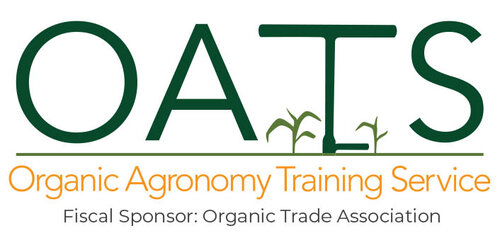Planning for transition with larger acreages
Grain farms continue to grow larger, and organic grain continues to grow in popularity. When larger farms want to transition to organic, there are many questions to ask. Understanding the options and developing a transition strategy for transition can save farmers and advisors a lot of trouble. In this call, we will speak with Nic Podoll, who grew up on an organic grain farm and now helps farmers through transition in his role with Rodale Institute. Join this call to learn from Nic’s experience helping larger farms transition around the country.
This is a free Zoom Event!
“This call is your opportunity to learn about designing an organic transition strategy for larger farms, and to ask a national expert your own questions.”
SPEAKERS
Nic Podoll, Rodale Institute
Nic is a lifelong organic farmer, having grown up and farmed with his family on their certified organic farm in southeast North Dakota, raising small grains and vegetable seed. Prior to working at Rodale Institute, he worked in Extension for the University of Minnesota and North Dakota State University. He also served several years on the NCR-SARE Farmer Rancher Grant Review Committee. Nic is IOIA certified in crops and holds a Master’s in Agricultural & Extension Education from North Carolina State University.
Sam Oschwald Tilton, Facilitator
“I have worked with organic farmers all over the US and Canada to understand production systems and solve weed management issues. This past season, on farms and in winter conferences, I spoke with as many farmers and ag professionals as I could to understand the questions that organic producers have, and the experts that they’d like to learn from. Those conversations helped me identify the topics and guests for this series. I am excited to bring together a wide range of farmers and ag professionals from many backgrounds, all of whom have an experienced perspective to share. In each call I look forward to having an intelligent conversation with the guest that introduces the topic to those who are unfamiliar and also dives deep to bring further understanding and clear tips to listeners. After the conversation we’ll take questions from listeners, so that they can communicate directly with each guest to get the answers that they need. My goal for this call series is to provide crucial information on topics facing organic and transition-curious farmers, in an approachable conversation that listeners can easily listen to during their lunch hour.”
Funding Acknowledgement
This material is based upon work that is supported by the National Institute of Food and Agriculture, U.S. Department of Agriculture, under agreement number 2022-38640-37486 through the North Central Region SARE program under project number ENC22-215. USDA is an equal opportunity employer and service provider. Any opinions, findings, conclusions, or recommendations expressed in this publication are those of the author(s) and do not necessarily reflect the view of the U.S. Department of Agriculture.




